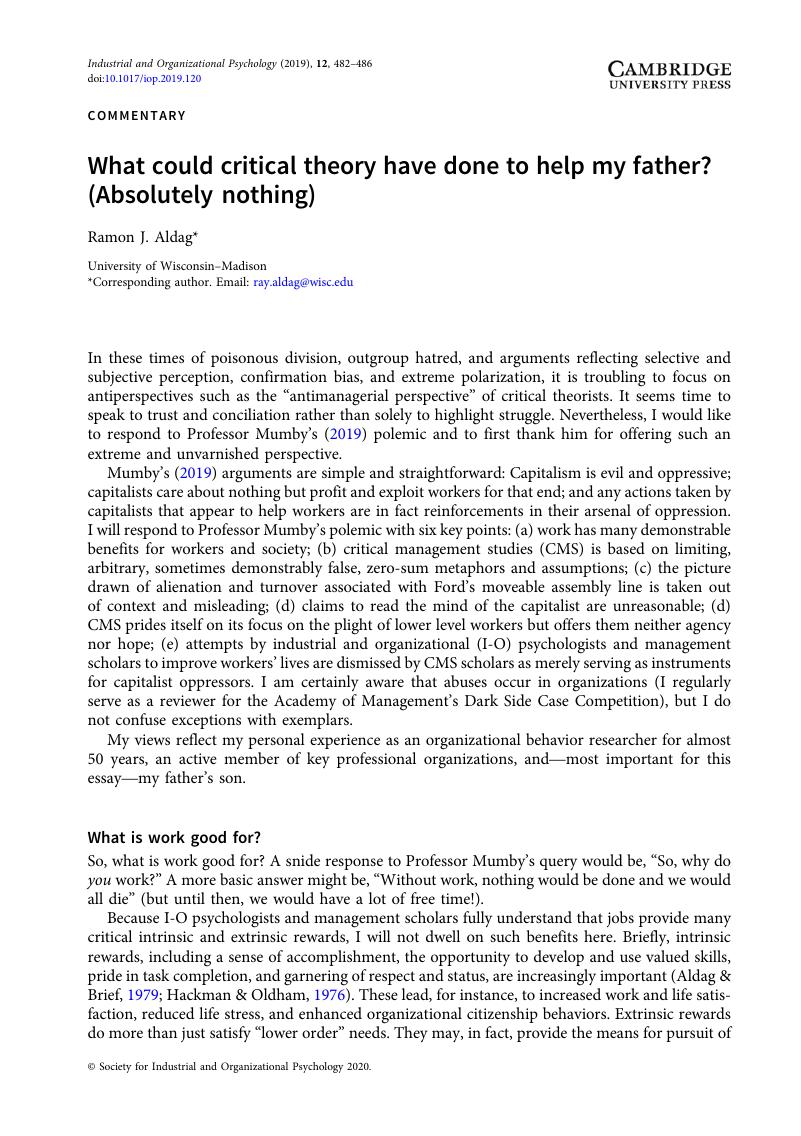Crossref Citations
This article has been cited by the following publications. This list is generated based on data provided by Crossref.
Zacher, Hannes
and
Rudolph, Cort W.
2020.
Beware of “Populist Science”! – A Commentary on Bal (2020).
Zeitschrift für Arbeits- und Organisationspsychologie A&O,
Vol. 64,
Issue. 3,
p.
202.
Zacher, Hannes
and
Rudolph, Cort W.
2023.
Effects of person–occupation political orientation misfit on occupational identification: An experimental study.
Applied Psychology,
Vol. 72,
Issue. 3,
p.
1248.



